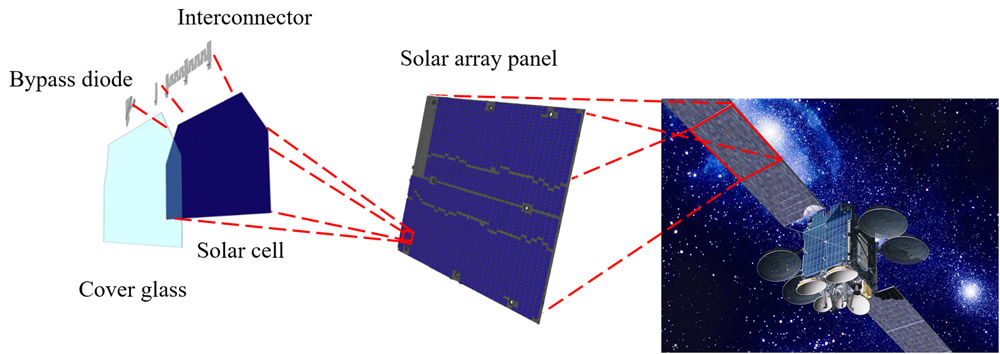News: Photovoltaics
3 September 2025
Mitsubishi Electric selected for JAXA’s Space Strategy Fund to develop solar cells for Japanese satellites
Tokyo-based Mitsubishi Electric Corp has been selected as a representative organization for the technology development ‘Development of Domestic Solar Cells, Cover Glass, and Solar Arrays’ under the ‘Development/Verification of Parts/Components for the Establishment of Satellite Supply Chain’, which is one of the technology development themes included in the 1st Phase of the Space Strategy Fund operated by the Japan Aerospace Exploration Agency (JAXA). Mitsubishi Electric has signed a contract with JAXA covering this development.
In recent years, with the expansion of the satellite market — including low Earth orbit (LEO) satellite constellations — the demand for solar cells onboard satellites and cover glass to protect solar cells from space radiation has increased, and a global supply shortage has caused high prices and long delivery times.
As part of this project, Mitsubishi Electric will develop low-cost, mass-producible solar cells in collaboration with domestic suppliers who have expertise in solar cells. In addition, the firm will verify the applicability of glass used for ground-based products to the space environment and work toward the mass production of low-cost cover glass. Furthermore, it will develop new solar arrays incorporating the new solar cells and cover glass, aiming to enable their smoothly integrated domestic production. The company aims to help to strengthen the domestic satellite supply chain by reducing the cost of solar arrays and their components and strengthening supply capabilities.
In the development of solar cells, Mitsubishi Electric will collaborate with Japan-based PXP Corp, which possesses cutting-edge solar cell technology and conducts R&D on next-generation photovoltaic conversion elements, including perovskite structures and CIGS (copper indium gallium diselenide). The collaboration will focus on research into the practical application of perovskite/CIGS tandem solar cells in the space environment.
These solar cells have conversion efficiency equivalent to existing conventional mainstream III-V solar cells, and are expected to maintain conversion efficiency while having higher resistance to space radiation than conventional products.
Additionally, both perovskite solar cells and CIGS solar cells can be manufactured more easily, more cheaply and in greater bulk than conventional products.

The combination of PXP’s advanced solar cell manufacturing technology and Mitsubishi Electric’s extensive satellite system development and manufacturing technology is expected to facilitate the cost-effective mass production of solar cells that maintain high reliability and conversion efficiency, even in space.
“Through the practical implementation of solar arrays equipped with domestically produced solar cells and cover glass that balance low cost and high performance, while ensuring resistance to the space environment and enabling mass production, we will help strengthen Japan’s satellite supply chain and enhance the international competitiveness of the country’s space industry,” says Natsuki Asano, senior manager, Solar Array & Composite Engineering and Project Section, Satellite Mechanical Components Department, at Mitsubishi Electric’s Kamakura Works, who will lead the representative organization.









